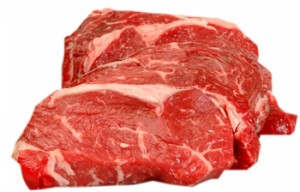
Protein is a nutrient you need on a daily basis. It plays a significant role in a wide range of your body’s functions. That includes hormone development, muscle health and function, blood sugar stabilization and repairing tissues. Not getting enough can be a problem. Though deficiencies are rare in many parts of the world, it still pays to understand protein and its role in your body.INFORMATION NIGERIA brings to you in this piece everything you should know about protein.
One of the most important things to know about protein is how much you should have on a daily basis. The average woman should be getting 46 grams per day.
Your protein intake should take up between 10 to 35 percent of your total calories.
However, these numbers apply to a 2,000 calorie diet so if you eat more or less of that, you may need to adjust your protein intake.
Talk to your doctor about how much is right for you.
2. WHERE DOES IT COME FROM?
There are a large number of foods that allow you to get enough protein during your day. The best source is meat, whether you choose beef, chicken, fish or pork.
However, if you don’t eat meat, you can still get enough protein.
Choose beans, low-fat dairy foods, nuts, seeds and eggs.
3. DOUBLE IT UP
I don’t mean double how much you eat, but double your sources.
Instead of relying on just a couple of things when it comes to protein, try combining several sources.
Protein contains different amino acids, so when you combine sources, you are better able to cover your needs.
Experts suggest combinations like cottage cheese with crackers or rice and beans.
4. TOO MUCH PROTEIN CAN BE A BAD THING
When it comes to protein, more isn’t always better. While you could get up to 150 grams per day without risk, going much higher than that could pose health risks to your bones and kidneys.
Experts say that you don’t need to eat meat at every meal and a diet too high in meat can cause concerns as well.
Mix and match meat and non-meat sources of protein to cover your bases and enhance your health at the same time.
5. GET YOUR PROTEIN FROM NATURAL FOOD SOURCES
If you think that eating protein bars, powders or shakes is a good way to close gaps in your intake, you might want to think again.
Most experts agree that it’s better to eat whole, unprocessed foods as often as you can.
Many protein products contain a lot of added sugar, which is definitely not good for your health.
SPREAD IT OUT A LITTLE
It’s better for you to spread your protein out throughout the day rather than trying to get it all in at once.
Your body is able to more efficiently use it that way and because protein offers energy, it keeps you fueled all day long.
Try having eggs for breakfast, a salmon salad for lunch, nuts for a snack and a chicken breast for dinner.
That way you get what you need and maximize its benefits.
WHAT COUNTS AS A SERVING
Knowing what constitutes a serving of protein can help you balance your intake in a healthy way over the course of a day. When it comes to meat, one ounce is considered a serving. An egg, a handful of nuts or seeds and a ¼ cup of beans also count as one portion.
Use this as your guideline and you’ll be good to go.
Did you learn anything new about protein?
//





